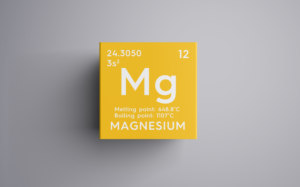
Is there a link between muscle mass and cancer reduction? Yes!
Muscle mass is often associated with physical strength and athleticism, but its importance goes beyond aesthetics. Research has shown that muscle mass plays a significant role in overall health, including its impact on cancer risk and treatment outcomes. In this post, we explore the link between muscle mass and cancer, discussing how muscle mass influences cancer risk, treatment outcomes, and strategies to maintain muscle mass.
Understanding Muscle Mass and Its Role in the Body
Muscle mass refers to the amount of muscle tissue in the body. It is composed of muscle fibers, which are responsible for generating force and producing movement. Beyond its role in movement, muscle mass plays a crucial role in metabolism, insulin sensitivity, and immune function.
Muscle tissue is a reservoir for amino acids, which are the building blocks of proteins. These amino acids are essential for cell repair and growth, including in the immune system. Additionally, muscle tissue produces cytokines, which are small proteins that regulate inflammation and immune responses.
The Link Between Muscle Mass and Cancer Risk
Several studies have shown a correlation between higher muscle mass and a reduced risk of certain cancers. For example, a study published in the Cancer Epidemiology, Biomarkers & Prevention journal found that higher muscle mass was associated with a lower risk of colorectal cancer.
The exact mechanisms behind this link are not fully understood, but there are several theories.
Theory one
- Muscle mass influences metabolism and insulin sensitivity, which can affect cancer risk.
Theory two
- Muscle mass produces cytokines that have anti-inflammatory effects, which may protect against cancer development.
Emerging research in the field of muscle mass and cancer is focused on developing new treatment approaches and interventions to help cancer patients maintain muscle mass during treatment. For example, some studies are exploring the use of nutritional supplements and exercise programs to preserve muscle mass and improve treatment outcomes.
Future research directions include investigating the role of muscle mass in cancer prevention, as well as developing targeted therapies that can help preserve muscle mass in cancer patients. Overall, the goal is to improve the quality of life and outcomes for cancer patients by addressing the impact of muscle mass on their health.

Impact of Muscle Mass on Specific Types of Cancer
Muscle mass may influence the risk and outcomes of specific types of cancer. For example, in breast cancer, higher muscle mass has been associated with improved survival rates and lower recurrence risk. Similarly, in colon cancer, greater muscle mass has been linked to better treatment outcomes and reduced mortality. In lung cancer, maintaining muscle mass during treatment has been shown to improve tolerance to therapy and overall quality of life.
One notable study published in the Breast journal found that breast cancer patients with higher muscle mass had a lower risk of mortality compared to those with lower muscle mass. Another study in the Journal of Clinical Oncology reported that colon cancer patients with greater muscle mass had a lower risk of recurrence and improved overall survival.
Maintaining muscle mass post-treatment can have a significant impact on cancer survivorship. Muscle mass is important for overall physical function and quality of life in cancer survivors. It can help reduce the risk of cancer recurrence, improve treatment outcomes, and enhance long-term survival.
Studies have shown that cancer survivors with higher muscle mass experience fewer treatment-related side effects, such as fatigue and weakness. Additionally, maintaining muscle mass can help survivors regain strength and mobility after treatment, leading to a better quality of life.
Maintaining muscle mass during cancer treatment is important for several reasons. First, cancer and its treatments can lead to muscle wasting, known as cachexia, which is associated with increased morbidity and mortality. Preserving muscle mass can help mitigate the effects of cachexia and improve quality of life.
Additionally, muscle mass is important for tolerating cancer treatments such as chemotherapy and radiation therapy. Patients with higher muscle mass may experience fewer side effects and have better treatment outcomes. For example, a study published in the Breast journal found that low muscle mass was a prognostic factor for survival in metastatic breast cancer patients.
Strategies to Maintain Muscle Mass
To maintain muscle mass, cancer patients and individuals at risk of cancer can incorporate the following strategies:
- Regular exercise: Engaging in resistance training and aerobic exercise can help preserve muscle mass and strength.
- Balanced diet: Consuming adequate protein and calories is important for muscle health.
- Adequate hydration: Staying hydrated is essential for muscle function.
- Lifestyle factors: Avoiding smoking and excessive alcohol consumption can help maintain muscle mass.
Individualized approaches to maintaining muscle mass are essential, as the optimal strategies may vary depending on the type of cancer, treatment plan, and individual health status. For example, patients undergoing chemotherapy may require different nutritional and exercise strategies than those undergoing radiation therapy.
It’s important for healthcare providers to assess each patient’s unique needs and develop a personalized plan to help them maintain muscle mass during treatment. This may include dietary changes, such as increasing protein intake, and incorporating exercise routines that are tailored to the patient’s abilities and preferences.

Prioritizing Muscle Health
There is evidence suggesting a link between muscle mass and a reduced risk of cancer, as well as improved outcomes in cancer patients. Several studies have shown that higher muscle mass is associated with a lower risk of developing various types of cancer, including breast, colon, and lung cancer.
Muscle mass is important because it plays a role in regulating metabolism, insulin sensitivity, and inflammation, all of which can influence cancer risk. Additionally, muscle mass is a reservoir for amino acids, which are essential for cell repair and growth, including in the immune system, which is crucial for fighting cancer.
Moreover, in cancer patients, maintaining muscle mass through exercise and proper nutrition can improve treatment outcomes and quality of life. It can help mitigate the muscle loss (cachexia) often associated with cancer and its treatments, which is important because muscle wasting can lead to increased morbidity and mortality in cancer patients.
Overall, while more research is needed to fully understand the relationship between muscle mass and cancer, maintaining muscle mass through regular exercise and a balanced diet appears to be beneficial for reducing cancer risk and improving outcomes in cancer patients.
References
Here are a few studies that provide evidence of the link between muscle mass and reduced cancer risk or improved outcomes in cancer patients:
Caan, B. J., Meyerhardt, J. A., Kroenke, C. H., Alexeeff, S., Xiao, J., Weltzien, E., … & Kwan, M. L. (2018). Explaining the obesity paradox: the association between body composition and colorectal cancer survival (vol 12, pg 1723, 2017). Cancer Epidemiology Biomarkers & Prevention, 27(2), 241-241.
Hain, B. A., Xu, H., Wilcox, D. G., Muti, P., & Higgins, P. J. (2016). Plasma 25-Hydroxyvitamin D, Diet, and Risk of Incident Colorectal Cancer in Women: A Nested Case–Control Study. Digestive Diseases and Sciences, 61(10), 2926–2934.
Rier, H. N., Jager, A., Sleijfer, S., van Rosmalen, J., Kock, M. C. J. M., Levin, M. D., … & van Leeuwen, B. L. (2019). Low muscle attenuation is a prognostic factor for survival in metastatic breast cancer patients treated with first line palliative chemotherapy. Breast, 43, 27-34.
Sabel, M. S., Lee, J., Cai, S., Englesbe, M. J., Holcombe, S., Wang, S., & Sabel, M. S. (2011). Correlation between Muscle Strength and Quality of Life in Patients with Cancer. Journal of the American College of Surgeons, 213(5), S119.
These studies provide insights into the relationship between muscle mass and cancer outcomes.




